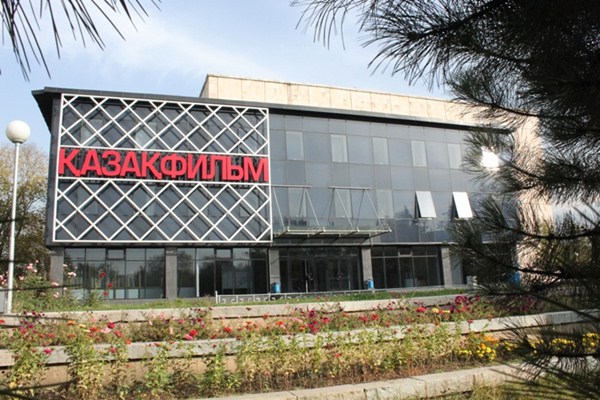GAITHERSBURG, MD – Kazakhstan’s film industry is one of the mechanisms the young country is using to define its own image on the international stage. Through scholarships and grants offered by the Kazakhfilm joint stock company, the country offers support for some young actors and directors and helps bring their work to domestic and international audiences.
 Kazakhfilm, which operates out of Almaty, has been responsible for some of Kazakhstan’s biggest critical and commercial hits at home and abroad, including recent award-winners “Harmony Lessons” (2013) and “Shal” (2012) and the big-budget epic “Myn Bala” (2011).
Kazakhfilm, which operates out of Almaty, has been responsible for some of Kazakhstan’s biggest critical and commercial hits at home and abroad, including recent award-winners “Harmony Lessons” (2013) and “Shal” (2012) and the big-budget epic “Myn Bala” (2011).
Kazakhstan’s Ministry of Culture and Sport discussed its support for young filmmakers for a Dec. 27 article in the Kazakhstanskaya Pravda newspaper. “Kazakhfilm provides all possible support to young filmmakers – financial, technical, advisory and even educational,” the ministry said in response to their query. “Thus, the studio collaborates with leading local and foreign universities of film and television. In Kazakhstan, there are the Zhurgenov National University of the Arts and Turan University, among others. [Abroad are] the Gerasimov Institute of Cinematography in Moscow, the New York Film Academy, the St. Petersburg State University of Film and Television, as well as other film schools where various kinds of educational programmes – directing, script and producer’s courses, workshops, training – are held.”
Young directors’ films are watched, the ministry said, and young Kazakh filmmakers who receive top marks in international film festivals may get support from Kazakhfilm to create their next production, “if there is a script on a socially significant theme,” the ministry told the newspaper. Kazakhfilm supports short films as well as feature length productions.
“National film production” is a programme in the national budget, the ministry noted.
Documentaries and at least one occasional feature were made in Almaty in the 1930s, but Kazakhstan’s film industry really launched in 1942 – 1944, when prominent Soviet filmmakers Vsevolod Pudovkin, Dziga Vertov and Sergei Eisenstein were evacuated to Almaty during the Second World War. Thrillers, epics, and, of course, propaganda, continued to be produced after the Russians left, and Kazakh films passed through several filmmaking waves of changing subjects and ethos.
The national film production company has existed all the while, first as Alma-Ata Film Studios in 1941, then renamed Kazakhfilm in 1961. After independence, the studio initially struggled with the rest of the country, producing films but, lacking a comprehensive distribution structure, generally failing to reach Kazakh audiences, as Kazakh film critic and researcher Gulnara Abikeyeva has pointed out. In 2005, this began to turn around with the big-budget production, “Nomad.” While no box office success, the investment in technology and talent – $37 million, according to multiple sources – seems to have boosted the domestic film industry. “Nomad” was followed by “Mongol,” (2007) another big-budget epic.
In 2010, the studio produced what became Kazakhstan’s highest-grossing domestic film, “Tale of the Pink Bunny,” which focused not on ancient Kazakhs but on young people in Almaty, raised in a newly-independent state. Between 2008 and 2010, according to a September 2010 Variety article, the share of domestic films in the Kazakh market increased from 3 percent to 7 percent.
Ten films were scheduled for release in 2012 and another half a dozen in each of 2013 and 2014.
“The film industry of Kazakhstan shows good dynamics – a significant rise compared to the previous decade. This volume results from a comprehensive process that occurs due to many factors, such as the success of Kazakh cinema, theatre and cinema chain growth, increased attendance at the box office, the expansion of infrastructure and filmmaking services and more. Today, our film industry is emerging as a promising sector of the economy, attractive for international cooperation,” the Ministry of Culture and Sport said, as reported by Kazakhstanskaya Pravda on Dec. 21.
Shooting on a 20-part film about the Kazakh Khanate is set to begin this month, they said. Kazakhstan will be celebrating 550 years of statehood in 2015.
